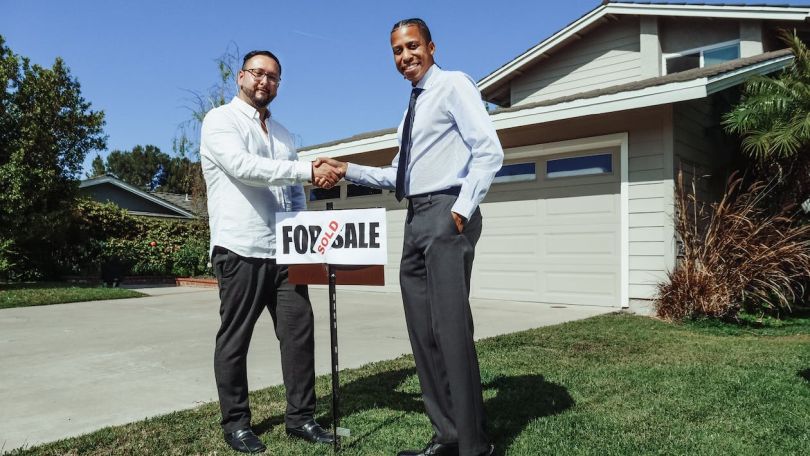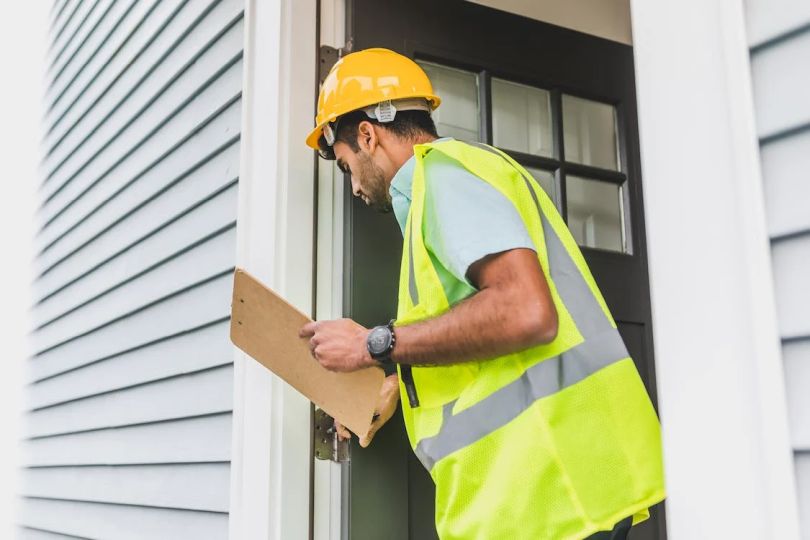6 Things To Consider Before Buying A New House
Buying a new house is an exciting and significant decision that requires careful consideration. After all, it’s not just a place to call home, but also a significant investment. With so many factors to consider, it can be overwhelming and challenging to know where to start. That’s why we’ve put together this comprehensive guide of six things you need to think about before buying your dream home. From budget constraints and location preferences to size requirements and resale value – we’ve got you covered!

1. Budget and Affordability
Before you start browsing for that perfect home, it’s important to set a budget and determine what you can afford. When creating your budget, keep in mind that owning a home comes with additional expenses beyond the initial purchase price. You’ll need to factor in property taxes, homeowner’s insurance, HOA fees (if applicable), utilities, and maintenance costs. It’s both crucial and logical that you are able to afford everything. Don’t forget to consider other financial goals such as saving for retirement or your children’s education. Avoid getting into a situation where your monthly mortgage payments are more than 28% of your income – this is considered the standard measure of affordability. Remember that buying a house isn’t just an investment; it’s also an emotional decision. It may be tempting to stretch your finances thin in order to get the house of your dreams but remember that being house-poor can lead to stress and financial instability down the road.
2. Home Inspection
Buying a new house is one of the most significant investments you will ever make, and to avoid costly mistakes, it’s essential to consider all aspects before making your purchase. Now, a home inspection can save you from unexpected repair costs in the future by identifying potential issues with the property. It’s advisable to hire an experienced and licensed inspector who can conduct a thorough evaluation of the house, including its structure, electrical system, plumbing system, and more. In addition, you can also rely on professionals at alamoroofingcontractors.com to properly inspect your roofs, or local plumbers to check your plumbing. Generally speaking, you would want local inspectors or handymen, as they know the local regulations and codes. During a home inspection, pay attention to any water damage or signs of mold growth. These could be indications of underlying problems that may require extensive repairs or even replacement in the long run. Additionally, inspecting for pests such as termites or rodents can prevent further damage that could affect your investment significantly. The inspector will also check for smoke detectors and carbon monoxide alarms to ensure they are functioning correctly.
3. The Location
You could have your dream home, but if it’s located in an undesirable area, then you might not enjoy living there. Therefore, when considering purchasing a new property, here are some factors to consider regarding location. Firstly, think about accessibility. Is the property close enough to your workplace or children’s school? If not, this could lead to long commutes and extra costs for transportation. Next up is safety. Regardless of how wonderful the interior of a home may be, feeling unsafe in your neighborhood can detract from its value significantly. Always research crime rates by speaking with local authorities and residents in order to make an informed decision. Consider what amenities are nearby such as grocery stores and entertainment options like parks or restaurants. These conveniences add value to any community and should also be taken into account when making your final decision on where you want to live.
4. Size and Layout
Think about the number of bedrooms and bathrooms you will need for yourself and any family members or guests who may visit. Also, consider if you want an open-plan living area or separate rooms for different activities. The flow of the house is also essential in determining whether the layout is right for you. Think about how easy it would be to move around in the space, especially if you have children or elderly relatives living with you. Another factor to consider is storage space – do you need a garage or extra closet space? This can greatly affect how comfortable and organized your daily life will be in your new home.
5. Condition and Maintenance
No one wants to purchase a home that will require constant repairs or renovations. Hence, one of the first things you should do is request a thorough inspection of the property before making an offer. This can help identify any potential issues with the home’s structure, plumbing, electrical systems, and more. It’s also important to ask about the age of major components such as the roof, HVAC system, and appliances. If they are outdated or in poor condition, they could end up costing you thousands of dollars in repairs or replacements down the line. You should also consider how well-maintained the previous owners kept the property. If there are signs of neglect such as peeling paint or overgrown landscaping, it could be an indicator that other areas of maintenance were overlooked as well. Don’t forget to factor in ongoing costs for maintenance and upkeep. A larger yard may require more frequent landscaping services while older homes may need regular pest control treatment.

6. Resale Value
A crucial factor in the resale value is the location. Is your potential home situated in an area that has good schools, shopping centers or public transportation? These features usually increase a property’s value as they attract more buyers. Another important aspect of the resale value is size and layout. If your home has too many bedrooms or bathrooms for its size, it may negatively affect its worth since it could appear cramped. Similarly, unusual layouts such as long hallways or unusually-shaped rooms can deter potential buyers. The condition of your house also plays a significant role in its resale value. You want to ensure that everything from plumbing to electrical wiring is up-to-date and functional. Any necessary repairs will lower your property’s worth severely. Additionally, consider any improvements or upgrades you plan on making; these projects can add significant value to your home but make sure they are worthwhile investments. While nobody knows what the future holds for property values accurately, researching market trends and consulting with professionals can help give insight into what kind of return one may expect down the line.
Buying a new house is an exciting and important decision that requires careful consideration. There are many factors to think about before making a purchase, including your budget, the condition of the home, its location, size and layout, as well as its potential resale value. By taking all of these things into account when shopping for your dream home, you’ll be able to make an informed decision that you can feel confident in for years to come. Remember to do your research and work with trusted professionals like real estate agents and home inspectors who can help guide you through the process.
